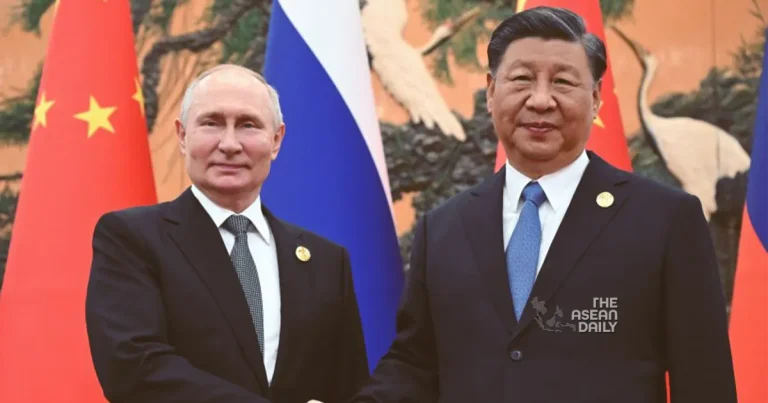24-5-2024 (BEIJING) The bond between Chinese President Xi Jinping and his Russian counterpart, Vladimir Putin, seems to be as strong as ever. The two leaders have met more than 40 times, including virtually, over the past decade, and their recent pledge of a “new era” in China-Russia relations during Putin’s two-day state visit to China last week is a testament to their enduring camaraderie.
However, this is not merely a marriage of convenience. While the current goodwill is largely due to their strong personal bond, it is underpinned by their shared worldview about the need for authoritarian, strongman leadership. Given their one-year age difference, Xi and Putin were likely shaped by the same global events, including the fall of the Soviet Union and the purported “victory of the West.”
Consequently, the economic crises faced by the United States and the long, drawn-out war on terror would also have framed both leaders’ calculations about the sustainability of Western global leadership – and importantly, whether their countries are entitled to have a greater say and share in shaping global norms and international rules.
As the Financial Times’ Gideon Rachman put it, Russia and China believe “the decline of US global power is necessary and inevitable.” A multipolar world would “allow different civilizations to live by their own rules.” For Beijing and Moscow, living by their own rules would presumably include governing their domestic constituents in a manner they deem appropriate – not what Washington prefers.
Given the state of the Xi-Putin ‘bromance,’ there is a widely held belief that China is best positioned to potentially broker peace in the Ukraine war. Hopes persist for some kind of diplomatic truce, under Beijing’s stewardship, between Kyiv and Moscow in the coming months, with Putin praising China’s peace plan ahead of his visit.
Beijing sees this conflict as one waged due to Western belligerence – from the expansion of NATO to America fanning the flames with continued aid and arms – and that any cessation of hostilities ought to be the initiative of the West, not China.
The Ukraine conflict distracts the United States from Asia, thus giving Beijing more breathing space and autonomy to act on its interests in the Asia-Pacific region.
Due to Western sanctions, Moscow has become reliant on China to keep its economy afloat. In April, China imported 9.26 million metric tons of oil from Russia, a 72% increase from February 2022, crucial for Beijing’s skyrocketing energy needs.
The war serves as a testbed for China to assess Western solidarity and cohesiveness in the event of a Taiwan contingency, allowing Beijing to fine-tune its warfare strategies without direct involvement.
That said, Xi and Putin do have their differences. The upcoming US presidential election in November could be a gamechanger for the Ukraine war. A win for incumbent President Joe Biden would likely ensure continuity in Washington’s support, while a Donald Trump victory could complicate the equation given his ambivalent position on the war and personal history with Putin.
Many European countries are understandably worried about Putin’s unchecked territorial ambitions should American support for Ukraine waver. Unsurprisingly, China has been trying to court the European Union, with Xi making his first Europe trip in five years, visiting France, Serbia, and Hungary – the latter two being part of his Belt and Road Initiative.
Cultivating European ties is a timely endeavor, as the US-China trade war is unlikely to change course regardless of the election outcome. And while Europe disapproves of China’s close ties with Russia, its ambitions for more strategic autonomy and less dependence on the US keep the door open for Beijing to create more diplomatic space and promote its vision for a multipolar world.
As long as Xi and Putin remain in power, the China-Russia ‘bromance’ will continue, as for both men, there are no better alternatives in sight.




